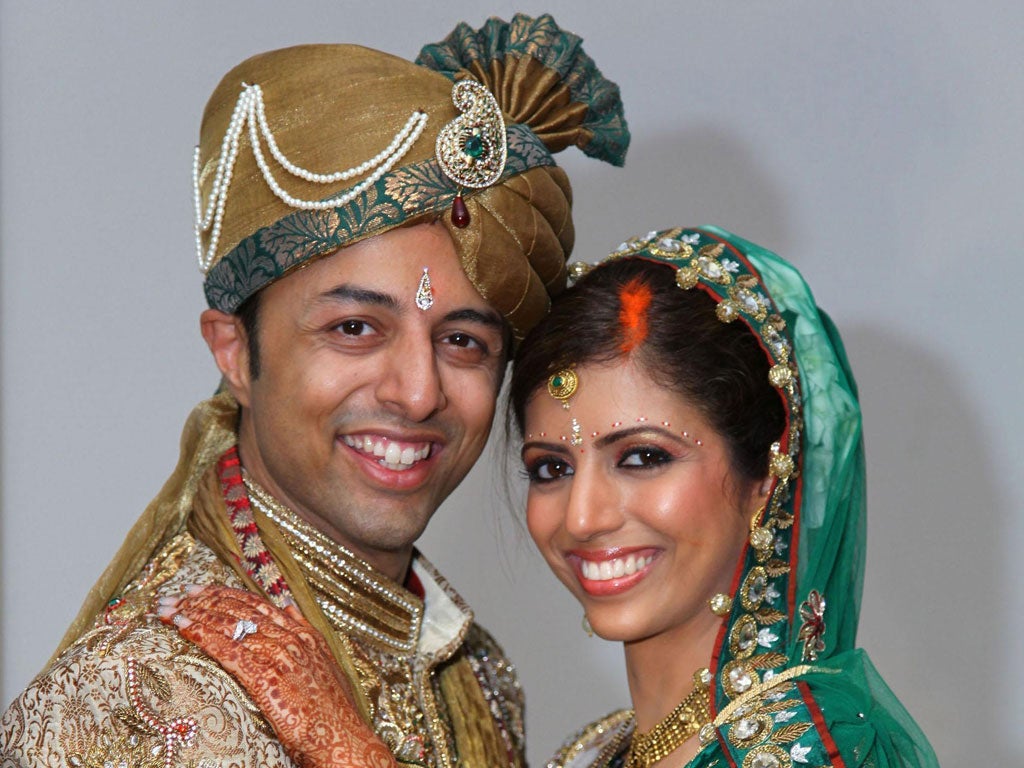
Shrien Dewani's extradition to face charges of masterminding his new bride's murder in South Africa was halted yesterday as senior judges declared it would be unjust and oppressive, bearing in mind his mental state.
The 31-year-old British businessman's apparent attempts to avoid a trial abroad in his present condition appeared doomed in September when Home Secretary Theresa May ordered his extradition.
But yesterday High Court judges considering his appeal sent the case back to magistrates, temporarily stopping the extradition. While insisting it was “in the interests of justice that the appellant be tried in South Africa as soon as he is fit”, Sir John Thomas added there were clear risks if he was “returned in his present condition”.
Reacting with a dignity that has marked every attendance at court hearings, Anni Dewani's family said that they hoped he would recover so they could finally hear the truth about the murder of their “dearest little sister”.
Her older sister Ami Denborg said: “It would be oppressive to send him back if his health is not good. We are happy, as a family, to hear that the court had decided it is in the interests of justice that he will go back to South Africa and the court has rejected his appeal on human rights.”
“We just want him to get better so he can finally go to South Africa and tell us what happened . We just want to know the truth because this is about our dearest little sister who was murdered.”
The businessman's family said they were grateful for the decision, adding: “Shrien is innocent and is determined to return to South Africa to clear his name and seek justice for his wife Anni.”
Mr Dewani and his 28-year-old bride were honeymooning in Cape Town in November 2010 when the taxi they were travelling in was hijacked in the Gugulethu township.
The groom, who has always protested his innocence, insisted he was forcibly ejected along with the driver Zola Tonga. The following day Mrs Dewani's was found in the back of the abandoned vehicle with a bullet wound to her neck.
Tongo later admitted to the crime, claiming as part of a plea agreement that Mr Dewani had ordered the hit. South African authorities want him extradited to face charges of murder, kidnapping, robbery with aggravated circumstances and obstructing the administration of justice.
Lawyers for the Bristol care home owner, however, have argued that his life would be in jeopardy if he was dispatched to a South African jail. Having been diagnosed with post traumatic stress disorder as well as depression, he had made one suicide attempt, developed psychotic symptoms and is currently held at a secure psychiatric hospital.
Yesterday, Sir Thomas, sitting with Mr Justice Ouseley, rejected his lawyers' claims that to extradite him was a breach of Articles 2 and 3 - right to life and protection from torture and inhuman or degrading treatment - of the European Convention on Human Rights or that he would be at risk of sexual assault and HIV infection.
But he added: ”Thus balancing his unfitness to plead, the risk of a deterioration in the appellant's condition, the increased prospects of a speedier recovery if he remains here and, to a much lesser degree, the risk of suicide and the lack of clear certainty as to what would happen to the appellant if returned in his present condition, we consider that on the evidence before the senior district judge it would be unjust and oppressive to order his extradition.
“Despite the highest respect in which we hold decisions of the senior district judge, we consider that he erred and should have exercised his powers under section 91(3)(b) and ordered that the extradition hearing be adjourned.”
The judges refused to discharge the case but remitted it back to Westminster Magistrates Court for a further hearing.
